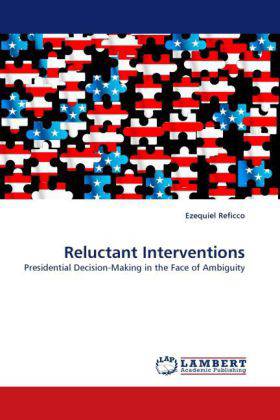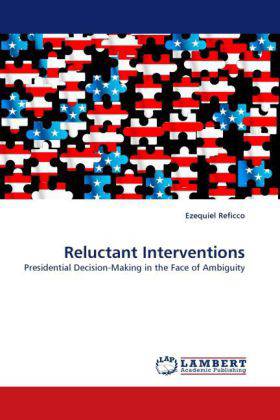
- Afhalen na 1 uur in een winkel met voorraad
- Gratis thuislevering in België vanaf € 30
- Ruim aanbod met 7 miljoen producten
- Afhalen na 1 uur in een winkel met voorraad
- Gratis thuislevering in België vanaf € 30
- Ruim aanbod met 7 miljoen producten
Zoeken
Reluctant Interventions
Presidential Decision-Making in the Face of Ambiguity
Ezequiel Reficco
Paperback | Engels
€ 77,95
+ 155 punten
Omschrijving
The political use of force ranks amongst the most extraordinary decisions a leader can make. The stakes are enormous; no other area of public policy matches foreign policy in the claim to the ultimate sacrifice--human life. Making this kind of decision is never easy; however, certain conditions can facilitate it. The use of force in self-defense, or in the protection of an ally, or a strategic supply on which the country is dependent, is something that all presidents are prepared to order. Unfortunately, leaders will not always have the benefit of a clear- cut choice between "the right thing to do" and the wrongful alternative. At times, they will be confronted with a gray area that is much harder to navigate. When physical survival and the protection of the homeland are assured, under which conditions should a leader ask his citizens for the ultimate sacrifice?
Specificaties
Betrokkenen
- Auteur(s):
- Uitgeverij:
Inhoud
- Aantal bladzijden:
- 288
- Taal:
- Engels
Eigenschappen
- Productcode (EAN):
- 9783838333892
- Uitvoering:
- Paperback

Alleen bij Standaard Boekhandel
+ 155 punten op je klantenkaart van Standaard Boekhandel
Beoordelingen
We publiceren alleen reviews die voldoen aan de voorwaarden voor reviews. Bekijk onze voorwaarden voor reviews.











